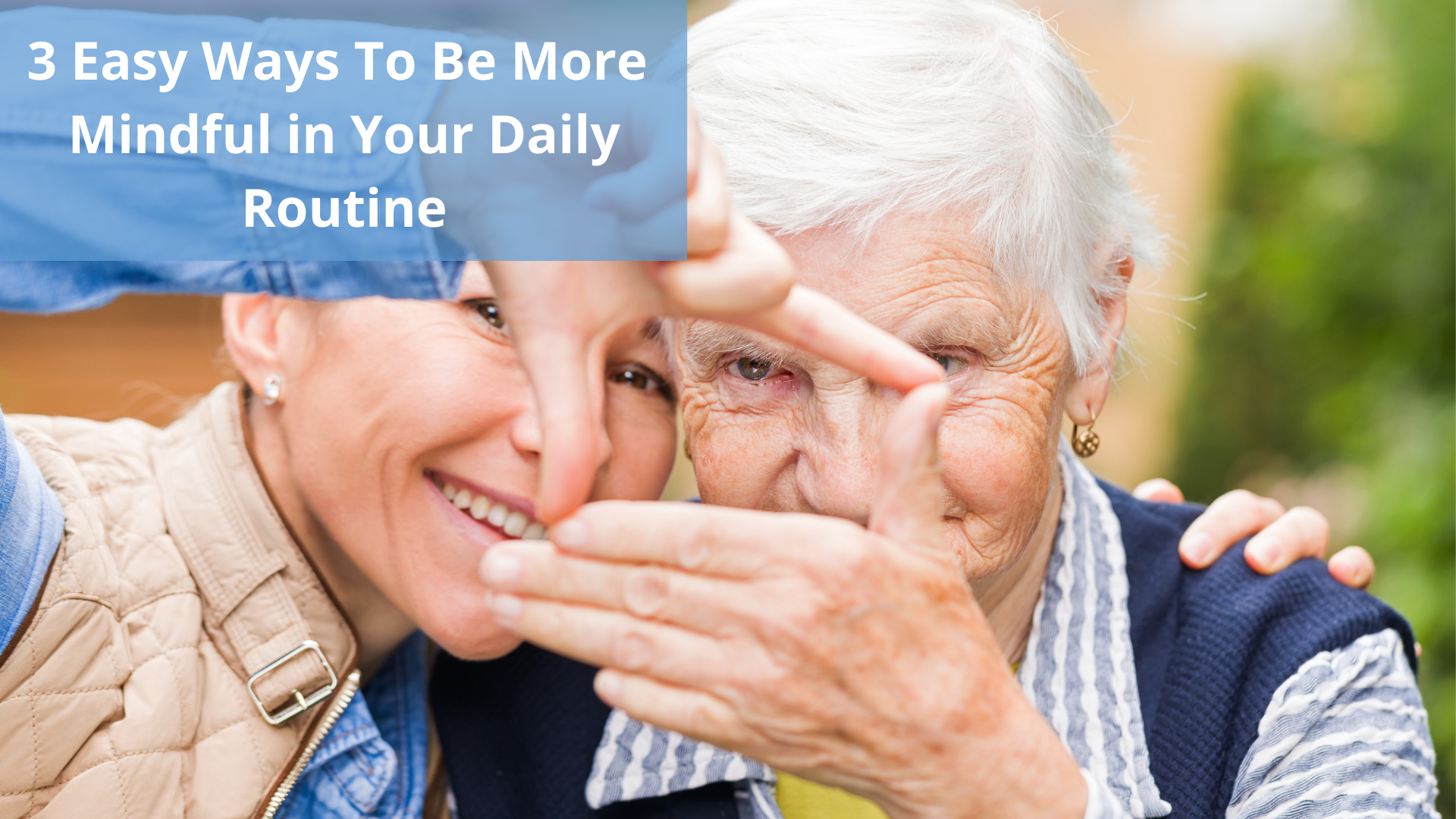Are you too busy to think about your health? Then you're just like most working Americans! The good news is, you can start making small changes today to get more mindfulness in your life, no matter how time-crunched or distracted you are. The word “mindfulness” is gaining a lot of popularity. You've probably heard everyone from monks to CEOs to psychologists waxing poetic about the wonders of mindfulness. Yet, many people still don't know what it is. Read on to discover exactly what mindfulness is, and why everyone can benefit from its practice.
What is mindfulness?
Mindfulness is the process of being fully aware and present in the moment. It is an exercise in being aware of your thoughts, feelings and surroundings. It involves focusing on the present moment without judgment or critique. It's a way to help you live in the here and now—without letting worry about the past or future get in your way. Most importantly, mindfulness has proven health benefits for people of all ages.
The benefits of mindfulness:
Studies have shown that mindfulness can help you live a happier, healthier, calmer life. It can help you deal with stress, anxiety, and depression. It can also help you improve your relationships and reduce the symptoms associated with chronic pain. Mindfulness has been proven to be an effective treatment for a variety of health conditions such as irritable bowel syndrome (IBS), arthritis, psoriasis, and fibromyalgia—all without the side effects of drugs or surgery.
How to use mindfulness to improve your health:
- Belly breathing
- Belly breathing is a great way to start a mindfulness practice. It’s also the first step of many meditation techniques and exercises that you can use to help you relax and focus on the present moment. Belly breathing works because it slows down your heart rate and blood pressure, which helps calm your mind.
- How to practice belly breathing:
- Take a deep breath in through your nose.
- Hold that breath for a few seconds and then slowly release it through your mouth.
- Repeat this exercise 10 times.
- Listening to your heart and breath
- Listening to your heart and breath can give you a better understanding of how your body feels and what it needs. You might notice that you feel stressed. Or, you might notice that your breathing is shallow and rapid, which indicates that you may be feeling anxious. When you’re in tune with how your body feels, it can help guide your decisions about eating healthy foods and exercising regularly—two things that are important for maintaining good health.
- How to practice listening to your heart and breath
- Try this exercise: Sit down with your back straight, or lie down flat on the floor with a pillow under your head. Using one hand, place three fingers over your wrist at the point where it meets your hand. Put your other hand on your chest, over your heart. Breathe in and out slowly for a few minutes. As you do so, focus on the feeling of your hands on your body. Notice if there’s a difference between how they feel when you are breathing normally versus taking deeper breaths or holding them in.
- Mindful movement
- Mindful movement is any physical activity that you do with awareness. It could be anything from walking down the street to doing housework. When you’re mindful, you focus on how your body feels as it moves through space. This allows you to pay attention to any pain or discomfort in your body and respond accordingly.
- How to practice mindful movement:
- Try a mindful walk outside. Listen to the rhythmic sounds of your steps as they sync up with your breath and heart beat. Observe the sights, sounds, and sensations of the walk without judgment. See if you can simply notice without assigning value (either positive or negative) to what you experience. This exercise works just as well on a walk around the block as it does for a long hike!
Takeaway: Mindfulness can help you feel calmer, more in control, and happier. This can have positive effects on your health.
There are a variety of mindful practices that you can incorporate into your everyday life. Start small and explore them as you go along. Soon enough, mindfulness will feel like second nature. Mindfulness can help reduce stress and promote better health. So, how can we stay mindful? Well for one thing, spend time away from screen time – especially television. And most importantly, talk to people in person more often. Turn off the computer and your phone, turn off the TV and pick up a book, have coffee with a friend, or make dinner at home with your family! Mindfulness requires very little time and commitment, so why not give it a try?
* Please note, this post is for informational purposes only. Do not substitute the information in this post for medical or legal advice from a certified and licensed professional.*




